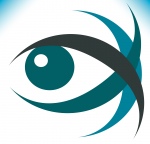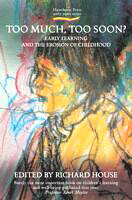David Wright examines both the fascinating story of its scientific discovery, as well as its changing social history, using examples from Medieval Europe to the present day
DOWNS: The History of a Disability (Oxford University Press, 2011)
Down's Syndrome is one of the most recognizable forms of learning disability, and is one of the world's most common chromosomal disorders. First identified by John Langdon Down in a series of lectures in 1866, Down's Syndrome is a condition characterized by distinct facial anomalies, disability in intellectual development, and physical stigmata. It wasn't until 1959, when the French paediatrician and geneticist Jérôme Lejeune identified the condition as arising from an extra copy of chromosome 21, that it became more commonly known as Down's Syndrome, or in common parlance, simply Downs.
In DOWNS: the history of a disability, David Wright examines both the fascinating story of its scientific discovery, as well as its changing social history, using examples from Medieval Europe to the present day. He examines the institutionalization of those considered 'mentally retarded' in state asylums, the intellectual world of the Victorian physician John Langdon Down (who introduced the term Mongolism), and the emergence of eugenics movements which sought to sterilize the 'mentally unfit'. The discovery of the genetic basis of the condition in the 1950s profoundly changed social attitudes and medical approaches, ushering in a controversial era of prenatal testing. Technological change coincided with changing social and political contexts, as individuals slowly ceased to live in large residential institutions and began to be integrated into community settings. The last generation has witnessed a new emphasis on social inclusion and civil rights. By the end of the twentieth century, individuals with Down's Syndrome, and the ethical debates surrounding them, had finally moved into the mainstream.
About the author: David Wright is Professor of History and Canada Research Chair at McGill University in Montreal, Canada. An historian by training, he specializes in the social history of learning disability, mental disorders, and mental hospitals. He is the author and co-editor of eight books, including the first academic volume on the history of learning disability (with Anne Digby, eds.) From Idiocy to Mental Deficiency: Historical Perspectives on People with Learning Disabilities (Routledge, 1996), and a wide-ranging examination of the global rise of the mental hospital (with the late Roy Porter, eds.) The Confinement of the Insane, 1800-1965: International Perspectives (Cambridge University Press, 2003).
For more details, look here.
 government's new Early Years Foundation Stage is:
government's new Early Years Foundation Stage is:

 Leading educators, researchers, policy makers and parents advocate alternative ways ahead for slowing childhood
Leading educators, researchers, policy makers and parents advocate alternative ways ahead for slowing childhood